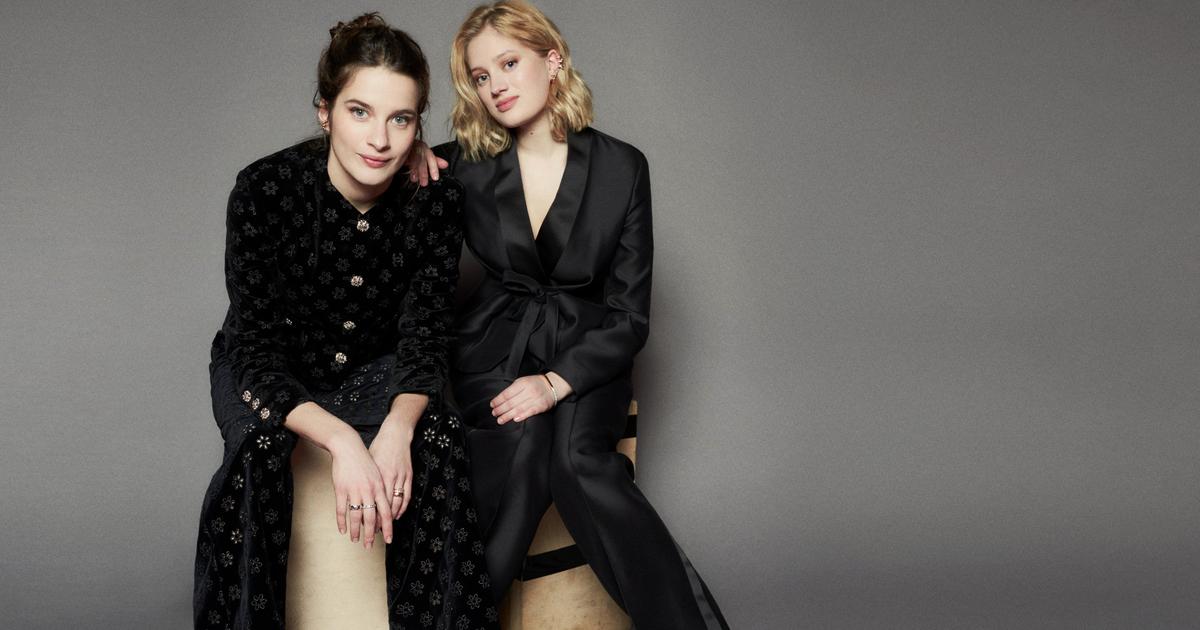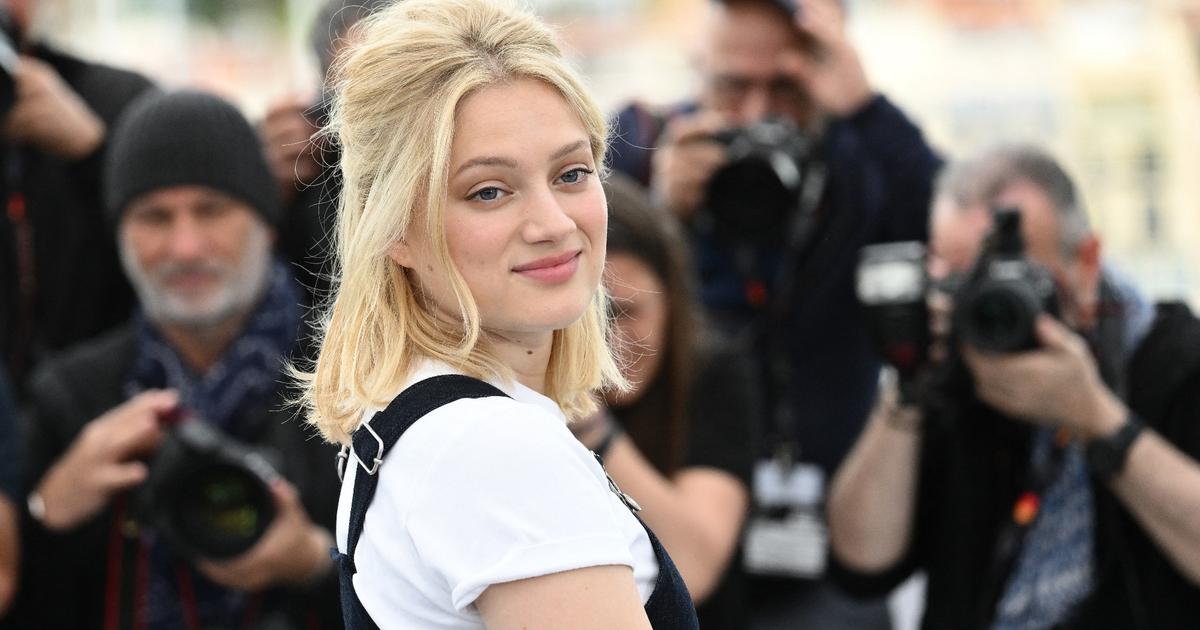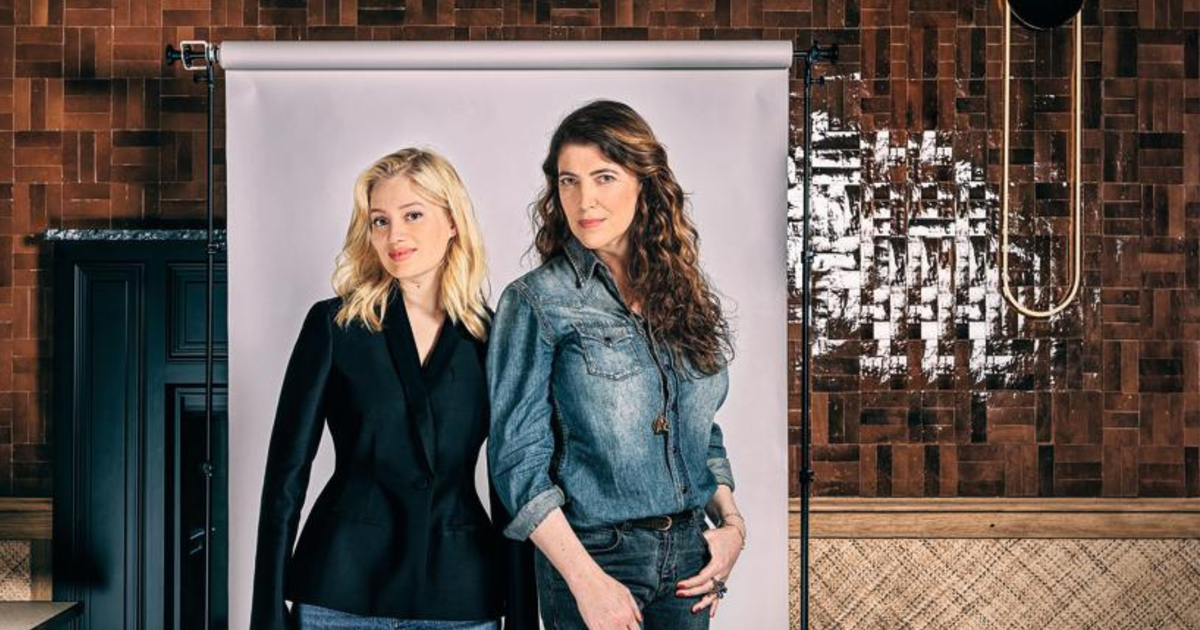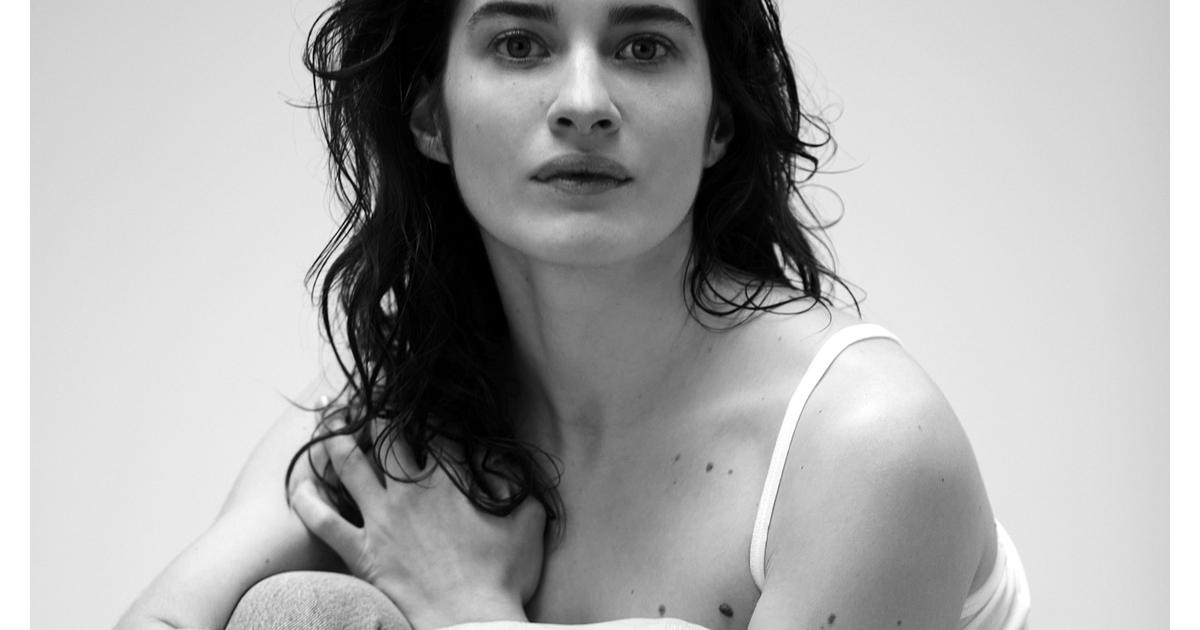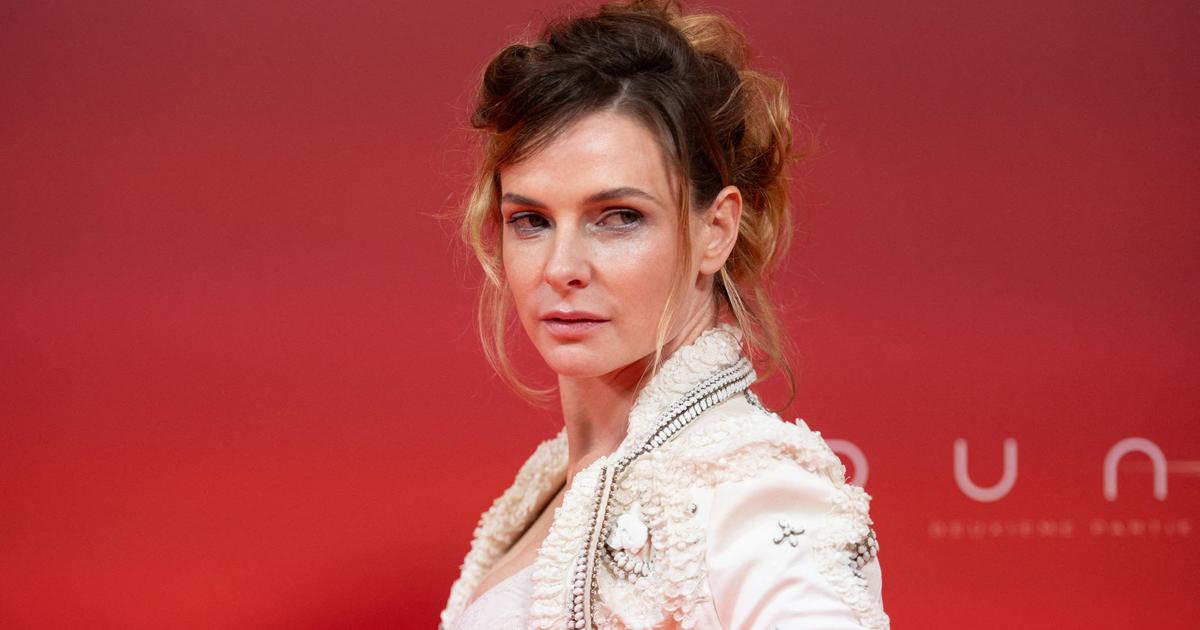They are the cinema revelations of 2022, both nominated for the Césars.
Two young film actresses sublimated by the roles of actresses.
In
A young girl who is well,
by Sandrine Kiberlain, Rebecca Marder is upsetting as an apprentice actress under the Occupation.
In
Les Amandiers,
by Valeria Bruni Tedeschi, Nadia Tereszkiewicz abandons herself body and soul as a student at Patrice Chéreau's theater school.
On February 24, during the French cinema awards, they will be face to face, decided by their peers.
Fifteen days later, everything will be forgotten to accompany the new film by François Ozon, of which they form the sparkling alliance.
Thwarting the cliché of the rival brunette and blonde, the French director imagined them best friends in
Mon crime,
a delectable comedy about two roommates struggling to make ends meet in 1930s Paris. When the first (Nadia), actress running the cachet, is accused of the murder of a libidinous producer, the second (Rebecca), an unemployed lawyer, puts on her dress to defend her.
In the spirit of
Potiche
and
Eight Women,
this homage to
screwballs
(mores comedies from the golden age of Hollywood) plays with the codes of theater and cinema, assuming excess and decorum, without however neglecting to be connected at the time.
Through this burlesque story, it is indeed the freedom of speech, sisterhood and the power of the image that the filmmaker and his troupe question.
Supported by Isabelle Huppert (irresistible as a tragic actress of past glory), Dany Boon and Fabrice Luchini, Rebecca Marder and Nadia Tereszkiewicz embody the changing world, artistic talent and women's society.
The mise en abyme is inevitable for these young talents who, during an interview, reform their duo.
Despite her reserve, the brunette with azure eyes, resident at the Comédie-Française for seven years, has a calm verb, a straight and determined gaze.
A former dancer, her partner has a frank laugh, a spontaneous verve, an enveloping sweetness.
François Ozon will have found the harmony of his duo precisely in these differences,
On video,
My crime
by François Ozon, the trailer
Miss Figaro.
– What did François Ozon represent for you?
Nadia Tereszkiewicz.
– Although my cinephilia is very recent, I have seen almost all of his films.
When I was 15, I remember taking a bus in the south of France to see
Dans la maison.
Twice.
What I like about François is that he is unclassifiable, that he dares to tackle all registers.
Rebecca Marder.
– I'm a big fan of
Eight Women,
a great film by actresses that I watched over and over, and
Gouttes d'eau sur les pierre brûlées.
François represented for me a dream of cinema.
His love of actors transpires so much in the image.
And on set, as he frames himself, you really feel watched.
NT
– And you are carried by his crazy energy.
In this film, through my role as an actress, and that of Isabelle Huppert, he asks questions that we all face: why do we want to be an actress?
How to be sincere when playing?
How to last in the profession?…
RM
– There are also strong parallels with theatre, where I come from.
In addition to the “boulevard” tone, or the court enclosure transformed into a theater stage, François allowed us to rehearse at length in the set and created a troupe spirit.
He brought together sacred monsters and beginners, without anyone trying to do his number.
With him, it's not a name that counts but the excellence of the group.
NT
– Valeria Bruni Tedeschi had also worked in this direction for
Les Amandiers
: to repeat, to create unity… I have never done theatre, but I have the strange impression of having approached it with these two films.
The film stands out in the relationships between the women: they do not crepe their buns as in Hollywood classics but form a common front to take their rightful place.
Rebecca Marder
The resonances go beyond that: the film also recounts the condition of women, yesterday and today.
NT
– In the 1930s, women had no right to vote, no checkbook, no voice in the chapter… Our characters are at the forefront but discover a political conscience by necessity: it is the key of their survival.
Things have evolved, but what they live sometimes still resonates today.
RM
– François injected a breath of #MeToo into his screenplay: the producer who tries to rape the young actress, the emancipation of our characters through speech… And, what impresses, is that he makes people laugh with these subjects without ever discrediting the fight.
The film also stands out in the relationships between the women: they don't crepe their buns like in the Hollywood classics, but form a common front to take their rightful place.
It goes against a lot of clichés about female rivalry, and I think it's nice that it's a man telling it.
The fact that Isabelle Huppert, Nadia and I embody her also says something.
On the lack of rivalry between actresses?
RM
– Totally.
Me, it's women who carried me, sometimes relieved when I thought of quitting this job.
Dominique Blanc or Julie Deliquet at the Comédie-Française, for example, reinforced my idea that everyone has their place, that what counts is to last and above all to play, whatever the place.
NT
– It's the job that opposes us, through the castings, the prizes… But the roles always find the actress for whom they are intended.
I had passed the cast of
A young girl who is well,
but when I saw Rebecca, it was such a no-brainer.
And, while she was filming, I was doing
Babysitter,
by Monia Chokri, who became the
one of my best friends.
Everything makes sense.
RM
– I agree.
I even forget having auditioned when I see a movie in theaters with another.
The period of change we are living through, with the rise of platforms, also forces us to be humble and benevolent: we do not know how these changes will impact us.
NT
– Recent events have shown us that nothing is certain.
So we enjoy, all together, in a spirit of camaraderie.
And really, I say this without naivety.
"It's a chance to do this job while giving more space to the visions of women"
You are nominated for the Césars for films by Sandrine Kiberlain and Valeria Bruni Tedeschi. What does their "sponsorship" mean?
RM
– I don't forget that it was Olivier Dahan who first trusted me to embody an extraordinary destiny in
Simone.
But the trust that Sandrine placed in me, by filming me from every angle, with crazy generosity, made it possible to grow the one I was struggling to get out of myself.
With her film, everything changed: after having been “the shy young girl number 3 in the bus scene” for a long time, I am being offered leading roles and magnificent supporting roles today.
NT
– He's also a man who trusted me first: Dominik Moll in
Only the Beasts.
But the Valeria school changed my method.
We looked together, always with respect, how to move around, to go further, to use my fear of ridicule… She taught me that acting meant being at 42 degrees, never being lukewarm.
Thanks to her, for example, I dared more on the set of films by Robin Campillo or Stéphanie Di Giusto, in which I play a woman with a beard.
In
Mon crime,
the actresses say they are dependent on the power and goodwill of men... Is this still the case?
NT
– It's a chance to do this job when we give more space to women's visions.
That said, I had the chance to work with benevolent men, where the notion of desire, of a relationship of seduction was no different from that which exists with a director.
RM
– For three years, I have the impression that directors, men, have also been offering me complex paths: Simone Veil, a feminist lawyer, a singer who questions artistic integrity in Les Goûts et les Couleurs
…
And
De great hopes,
by Sylvain Desclous, in which I play a woman who gets involved in politics (released on March 22), asks questions about what is considered moral for a woman, the way in which one perceives her ambition... NT –
There
is also has more space for female characters 50+.
A question raised by François' film.
At a time when your careers are taking off, how do you manage the perks of the job?
NT
– What questions me is the legitimacy of my words.
So, for the moment, my commitment, I prefer to express it through my roles.
RM
– I'm taming all of this because before, I was protected by the Comédie-Française: I didn't have time for promotion and I was forbidden to work with brands.
Today, I take it all as a game, but it seems to me necessary to keep a little mystery.
I'm afraid that by seeing us too much in the newspapers or on social networks, the desire of the directors or the belief of the spectators will wither.
I want to be able to disappear behind my characters.
NT
– We cannot be outside the system, we are asked to accompany our films on the networks, but we have to find a form of distance to preserve ourselves, not to be an open book, to feed on something other than ourselves…
Today I am lucky to have 1000 lives in one
Nadia Tereszkiewicz
How did your beginnings in dance and theater nurture the film actress?
NT
– I danced eight hours a day for fifteen years and yet, deep down inside, I knew I was in the wrong place.
Like when I did hypokhâgne/khâgne.
But these experiences allowed me to measure how much playing makes me happy.
Dancing also gave me a rigor: I even have the impression of never doing enough.
RM
– This discipline, the Comédie-Française also instilled it in me.
I couldn't drink too much with my girlfriends between my 20 and 27 years because I had a responsibility vis-à-vis the troupe.
It's training that empowers and builds muscle.
We are craftsmen, athletes because of the rhythm, and sponges: the alternation of parts and roles allows us to acquire technique and to remain mobile, to adapt quickly to different universes.
NT
– For me, it's listening to classical music, or discovering choreographers like Pina Bausch, which have sharpened my artistic sensitivity.
But above all, dance taught me to use my body as a vector of emotions.
Read alsoMarion Cotillard, Rebecca Marder, Romain Duris, Nadia Tereszkiewicz… The Caesar Revelations evening: we were there!
Didn't you feel like your youth was slipping away from you?
RM-
Never.
I started shooting movies and TV movies at 11, but without being pushed.
It was I who demanded, who languished, to the despair of my mother, moreover.
I also had friends, lovers, holidays, and I never saw the cinema or the theater as an obstacle to my life.
It was just what I loved to do.
NT
– I didn't have a real adolescence, but my job offers me an express catch-up: the experiences, I live them out of step, through encounters, travels, roles... Today I have the chance to have 1,000 lives in one.
"My crime", by François Ozon.
Released March 8.

